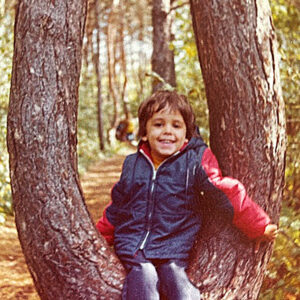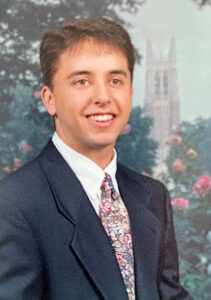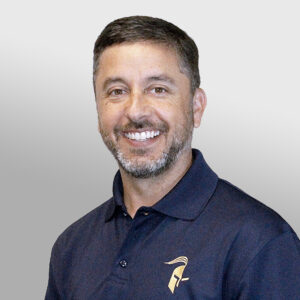



LEARN – DO – TEACH: Perspectives on a Consulting Career
The other day I realized that I have been in the consulting industry for nearly 30 years. Though it feels like I started yesterday, now that I’ve taken time to reflect, I’m struck by how my perspectives have changed over the years. When I started working for ICF Incorporated back in 1995, I had very little training and only modest consulting skills. However, as a young consultant I was fortunate to be introduced to many Government and commercial organizations and asked to work through some of their most difficult challenges. I learned from great leaders and collected some valuable lessons that I’ve gone back to over my career. What I have learned is that at any given moment, as a consultant one must be a learner, a doer and a teacher. While the focus of these three roles varies over the course of a career, at all times you must realize the mix of the three that is required. By doing so, you can build a successful consulting career.
Learning How to Learn
 I grew up in the northwest suburbs of Chicago where I was the youngest on my block. I was constantly challenged by older kids who were more athletic, wittier, and obviously more experienced than me. We played outside nearly every day, through the harshest winters and sweltering summers. While I took my academics seriously, I spent more time figuring out how to develop street smarts. Understanding how to read people and situations was to me much harder and more important than arithmetic or spelling. I observed how kids commanded respect from their peers, older kids, and even adults. Then I mimicked those behaviors. Athletic prowess was essential, and I was fortunate to be good at all the street sports we played. But I found one of the most important ways to earn respect was through personal connection. It’s harder to diss someone you like, so I developed and matured my sense of humor to get people to like me. I watched tons of sports on tv and listened on the radio too. I mastered sports trivia to the point where the older kids wouldn’t dare challenge me and adults were challenged by me. In school, I toed the line between know-it-all and class clown, gaining respect for my intellect and my wit. The apex of this maturing ability to read and connect to people occurred when I was elected Winston Churchill Elementary School Student Council President, beating the most popular girl in school.
I grew up in the northwest suburbs of Chicago where I was the youngest on my block. I was constantly challenged by older kids who were more athletic, wittier, and obviously more experienced than me. We played outside nearly every day, through the harshest winters and sweltering summers. While I took my academics seriously, I spent more time figuring out how to develop street smarts. Understanding how to read people and situations was to me much harder and more important than arithmetic or spelling. I observed how kids commanded respect from their peers, older kids, and even adults. Then I mimicked those behaviors. Athletic prowess was essential, and I was fortunate to be good at all the street sports we played. But I found one of the most important ways to earn respect was through personal connection. It’s harder to diss someone you like, so I developed and matured my sense of humor to get people to like me. I watched tons of sports on tv and listened on the radio too. I mastered sports trivia to the point where the older kids wouldn’t dare challenge me and adults were challenged by me. In school, I toed the line between know-it-all and class clown, gaining respect for my intellect and my wit. The apex of this maturing ability to read and connect to people occurred when I was elected Winston Churchill Elementary School Student Council President, beating the most popular girl in school.
By high school I had settled into a great friend group and continued with the sports that I enjoyed most, soccer and tennis. Comfortable with my ability to read my peers, I began to focus intensely on my academics and how to read the adults that would help me get to my dream school, Duke University. I began to work smartly, studying hard but also figuring out the game that is high school – getting on teacher’s good sides, striking the right balance between academics, extracurriculars, employment, and pursuing passionate service that demonstrated positive impact to the school and my community. This formula worked and I was fortunate to earn early decision acceptance into Duke.
 Because I applied early decision, my acceptance to Duke was binding. I’m fairly certain that my parents didn’t expect me to get into Duke, so the hefty price tag definitely weighed on me. To lessen their financial burden, I self-financed 40% of the cost through savings, scholarships, student loans, work study, and summer jobs. I am so grateful that I did all this because having to work for my high-priced education provided me with some of the greatest lessons a college student could learn. I learned how to organize my time and make the proper tradeoffs between the important and the urgent. And even though they were only summer jobs or work study positions, I paid close attention to how organizations were structured and the dynamics and differences of leadership and management. I took my people reading abilities to the next level, which when combined with an emerging ability to think critically and to write persuasively, made me a great professional consulting candidate despite only being 21 when I graduated.
Because I applied early decision, my acceptance to Duke was binding. I’m fairly certain that my parents didn’t expect me to get into Duke, so the hefty price tag definitely weighed on me. To lessen their financial burden, I self-financed 40% of the cost through savings, scholarships, student loans, work study, and summer jobs. I am so grateful that I did all this because having to work for my high-priced education provided me with some of the greatest lessons a college student could learn. I learned how to organize my time and make the proper tradeoffs between the important and the urgent. And even though they were only summer jobs or work study positions, I paid close attention to how organizations were structured and the dynamics and differences of leadership and management. I took my people reading abilities to the next level, which when combined with an emerging ability to think critically and to write persuasively, made me a great professional consulting candidate despite only being 21 when I graduated.
Learning While Doing
“If you’re too big for the little things then you are too little for the big things.” As I began my consulting career, I was struck by the complexity of client problems, and I felt completely unprepared to advise on solutions. “Faking it until I made it” was not an option. But what I did recognize right away was that there was genuine interest shown by some of my superiors to help mentor and guide me. I asked questions relentlessly, and some of my experienced colleagues took the proper time to answer me, though many did not. It’s not a coincidence that those that didn’t help me were not likely to help others, and thus not become successful business leaders.
As I found the leaders I wanted to follow, my approach to continuing my professional development became clear – learn on the job and in the classroom the various consulting techniques to stand out as a consultant (e.g., hypothesis generation, decision tree and SWOT analyses, balanced scorecard and RACI and importance vs performance matrices, etc.). Even more importantly, I learned to hitch my wagon to leaders who took the time to care for their followers, providing actionable, constructive, and timely feedback and developmental guidance. I found leaders who believed that investing in people was just as crucial to the organization’s success as exceptional client service. Before, during, and after a client engagement, I spent time talking to mentors about the service I was delivering to clients and valuing their feedback. I began to understand the makeup of a good leader – someone who rolled up their sleeves and worked in the trenches, no task was too small if help was needed. Leaders showed the way and created not just good followers, but future leaders. Leaders consistently displayed professional, ethical, and consistent behaviors that I wanted to learn so I would emulate them as much as possible. I also learned the difference between good leaders and good managers, the latter being focused on delivering high quality consulting services on time and under budget. The ultimate was finding a mentor who was a good leader AND a good manager, and I stuck to those people like white on rice.
As I developed my consulting acumen and trusted advisor status with clients, I realized that some cool things were happening. I was solicited to provide insight and guidance on key client issues – I had a seat at the table. I was also looked at to provide thought leadership in shaping and framing new issues, thinking beyond today to try and envision a better future for my clients. I was requested by clients to brief a vision and strategic implementation plans to executive leadership, which was incredibly exciting as I often felt the rush of “being on stage.” Ultimately, myself and my teams became viewed as “consultants” vice “contractors” which was very fulfilling. Of course, this led to increasing levels of client team responsibility as well as roles in business development. Throughout this part of my career, I continued to develop in a mentor-protégé model, gaining higher level insights about building teams and achieving higher levels of client success.
The Pivot to Teaching
One way to characterize the middle stage of my career is as an evolution from learner to doer. Said another way, it’s really been from follower to leader. I view this last stage of my career as an opportunity to pay forward all the amazing lessons I’ve learned. I feel fortunate to have had an audience who listens because I strongly believe that people, unless coached, never reach their maximum capabilities.
As a parent, some of my most memorable moments were those shared as I coached my children in sports or helped them through other pursuits. In coaching my son’s baseball teams, for example, both myself and my teams learned many life lessons given that in baseball, failure is so common that even succeeding 30% of the time means you’re an all-time great. As a true team sport, the lessons of empathy, balance, support, discipline, and sportsmanship carry over into so many aspects of life.
 In my career, as I’ve progressed from senior manager and team lead to executive, I became more connected with business goals and so spent less time on project delivery and more time driving teams to realize the goals of the institution. I’ve spent a significant portion of my time leading strategic efforts such as talent management, and my favorite role, instruction. As an executive, I’ve pivoted to expand my focus and demonstrate the leadership qualities that I had coveted in the early stages of my career. Like my mentors did for me, I’m teaching by sharing stories, lessons, and other instructional resources (i.e., sample deliverables, instructional materials, or readings) and guiding future leaders both in and out of the client site. I harkened back to my time spent asking questions and hitching my wagon to those who showed genuine interest in answering them. I strive to be the type of leader who I would’ve hitched my wagon to when I was just starting out. Make no mistake though, I’m not done learning or doing. I still lean on mentors who guide me on how to Remain Unconquered.
In my career, as I’ve progressed from senior manager and team lead to executive, I became more connected with business goals and so spent less time on project delivery and more time driving teams to realize the goals of the institution. I’ve spent a significant portion of my time leading strategic efforts such as talent management, and my favorite role, instruction. As an executive, I’ve pivoted to expand my focus and demonstrate the leadership qualities that I had coveted in the early stages of my career. Like my mentors did for me, I’m teaching by sharing stories, lessons, and other instructional resources (i.e., sample deliverables, instructional materials, or readings) and guiding future leaders both in and out of the client site. I harkened back to my time spent asking questions and hitching my wagon to those who showed genuine interest in answering them. I strive to be the type of leader who I would’ve hitched my wagon to when I was just starting out. Make no mistake though, I’m not done learning or doing. I still lean on mentors who guide me on how to Remain Unconquered.